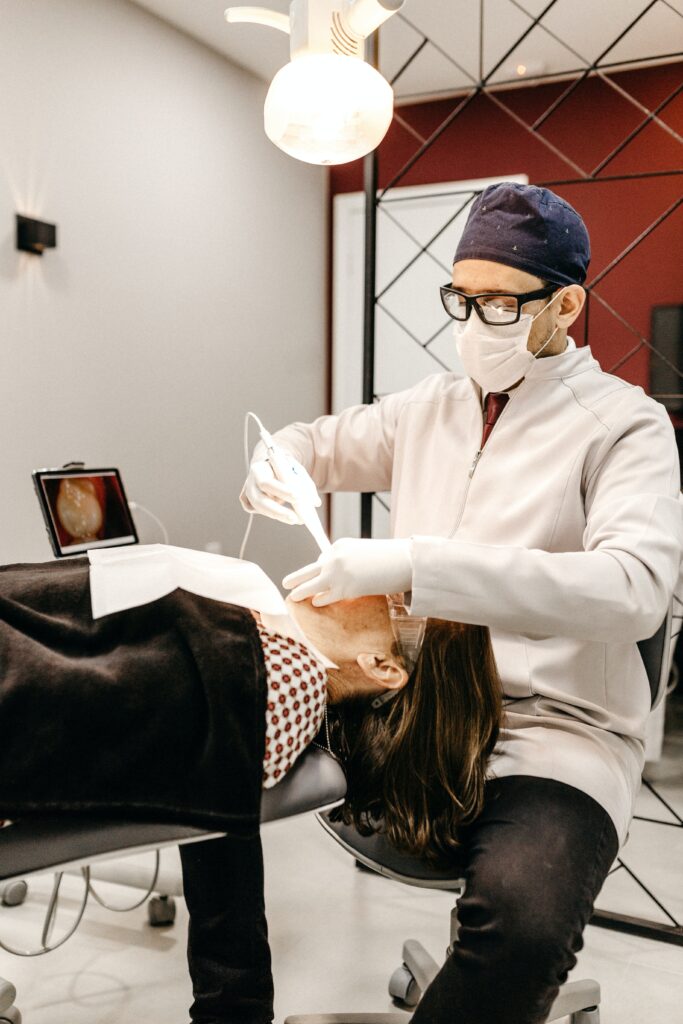Introduction
Starting a new dental practice means beginning a new business from scratch, which can be daunting. There is a lot of effort that goes into starting your dental business, from selecting if a partner is right for you to deciding how many personnel you will hire to deciding how you will market your business.
While basic treatments like cleanings and cavity fillings are consistently in demand, recent study reveals that an increasing number of people are interested in cosmetic dentistry, including whitening treatments and implants.
For those considering this career option, we’ve created a guide to support you as you develop, launch, and expand your practice. Thus, if you’ve ever wondered how to start a dental practice, keep reading.

Starting A Dental Office Business Plan
To start your own dental business, you must first plan ahead of time. The following are the key elements of the planning stage:
The executive summary
One of the most important aspects of the plan is probably the executive summary. It is a brief piece at the beginning of the plan that describes the entire strategy. This section usually lasts between one and two pages.
Some elements that need to be clearly stated in the executive summary include:
- Legal Framework: The first step in starting your practice is to decide what kind of business it will be. This section should also include the ownership stake each partner will have if you’re beginning to form a partnership. Resources like attorneys and accountants who will be a member of your support team should be included as well.
- Services offered: Describe which dental services you will offer in your practise. This section will also make clear what makes your dental practise different from that of your competitors and other nearby dentists.
- Goals: Prioritize your practice’s overarching aims. You should begin with the mission statement and then identify the specific goals.
- Market analysis: A review of the local dentistry market and your practice’s ability to address the needs you’ve identified.
- Marketing strategy: A brief explanation of the techniques you’ll use. This section should be a response to the market study, and you should go into further detail in the marketing plan section of the business plan.
- Break-even analysis: This evaluates the present viability of your practice and is included in the financial strategy.
- A summary of the operations plan: Describes the systems you have in place to help your practice grow. In the operations plan section, you will need to go into greater detail.
- Organizational / staffing structure: An overview of the number of employees, their duties, and a projection of staffing requirements.
This area is important when contacting lenders for loans. It should entice potential financiers and outline your strategy for turning your practice into a profitable venture. As a result, it needs to be compelling and persuasive.
Write a business plan
Every owner dreams of starting a flourishing dental practice, but you need a workable strategy to get there. A business plan can help with that. A business plan outlines your operation, specifies objectives, identifies your target market, and discusses financing.
Plan your finances.
As you put together a business plan, you’ll start to compile numbers. Yet, it’s important to fully understand your finances before starting your practice.
He advises knowing your overhead, in particular. Keep in mind that your payroll will be your most expensive line item when starting up. To keep prices down, start with basic phone and internet services.
Find the appropriate insurance.
Every business needs liability insurance, but dental practices have certain requirements. Before you start looking for locations, consult with an insurance professional about the kind of policies you’ll require. Ensure that this cost is taken into account in your budget.
Speak with an expert in the field.
Consult with other successful dentists about picking their brains—one of the finest ways to learn how to begin a dental practice. Locate someone who already manages a practice and ask to visit so you may observe how things are done there.
You will have the knowledge necessary to begin a dental practice, but there may be administrative tasks that you may not be familiar with.
Starting a dental office: Marketing your business
You can have the best dental talents in the world, but if no one knows you’re open for business, you’ll never get the chance to demonstrate them—and you might not be successful in launching a dental office.
Have a dental practice marketing plan in place before you start accepting patients. Determine your target audience and how to reach them with your practice. You must allocate five to seven percent of your collections to marketing for the first three years.
These are a few marketing strategies for attracting new customers:
Make a website that is user-friendly
You should begin with building a website that is visually appealing, simple to use, and provides important customer information like the business’s phone number and office hours.
A surprising number of people will pass by your office and then go home and Google your business to learn more.
Create a social media presence
Use social media to keep your customers interested while they aren’t sitting in your chair. When using a number of social networking sites, it’s crucial to consider how much time you want to spend there. Social media can take up a lot of your time, so it’s acceptable if you can only post and update on one platform—just choose the one that your target audience uses.
Capitalize on word-of-mouth
While there are many digital tools for marketing your business, good old-fashioned word of mouth remains extremely important in the dentistry world.
If your clients appreciate their interactions with you, they’ll be more inclined to refer others to you. You can think about offering a discount to your frequent clients who bring in a friend or family member.
Schedule some time for networking.
Your business will depend on referrals, so if you want them, get involved in the community. Make sure you’re getting your name out there by joining business associations and doing community service.
Starting a dentistry practise: expanding your business
After your business is established, you will transfer your focus to growth.
Here are some tips to help you guide your business in the proper direction:
Seek exceptional help
The first employee you’ll hire could be receptionist or office assistant, though you could not start hiring right away.
You’ll require assistance with making appointments, taking phone calls, and performing other administrative duties. When it comes time to fill this position, be sure to only consider candidates with the best communication skills.
This is typically the first person a customer comes into touch with, so you want him or her to not only make a good first impression, but also to assist the patient through the procedure in a helpful manner.
Focus on a certain area of dentistry
What do you enjoy doing as a dentist? To improve your abilities and customers, you must provide an answer.
When you initially begin, you can try to balance many different tasks. You need to pay the bills, after all. But, having a targeted skill set can help your practice last longer.
After you become well-known in the neighborhood, other dentists will also refer patients to your clinic.
Pay attention to your customers.
Prioritizing customer comfort and satisfaction should be your primary focus.
Ensure that you foster a positive connection with your customers. Be involved in their life before you start working. If a customer seems a little uneasy, try your best to comfort them. If a customer provides feedback, whether positive or negative, consider it.
The most important thing to remember when starting a dental practice is to provide a warm atmosphere throughout.

Add more services
When it’s time to extend your clientele, consider how you might increase the value of your offerings, strengthen your position as a market leader, and stimulate the curiosity of potential clients. Perhaps the size of your existing dental practice limits your production potential, and you’re considering moving to a larger building or hiring more staff. Your clinic might benefit from being easier to reach. Perhaps you’re thinking about adding additional specialties to fulfill the expanding demands of your community.
Make sure you don’t overextend your practise, no matter which path you choose! You will become a successful dentist with a strong reputation, devoted clientele, and maximize profits if you strike the proper combination of cutting-edge technology and uncompromising quality.
Conclusion
We hope that reading this article has given you some insight into the procedures involved in starting a new dental business. Remember that, despite the challenges, running your own practice may be extremely rewarding. You may be your own boss while doing something you enjoy. We wish you all the best on your journey.

Newsletter
Join our newsletter to get secret tips directly in your inbox!
News Letter
*We Hate Spam!



